Tourism industry in Bangladesh
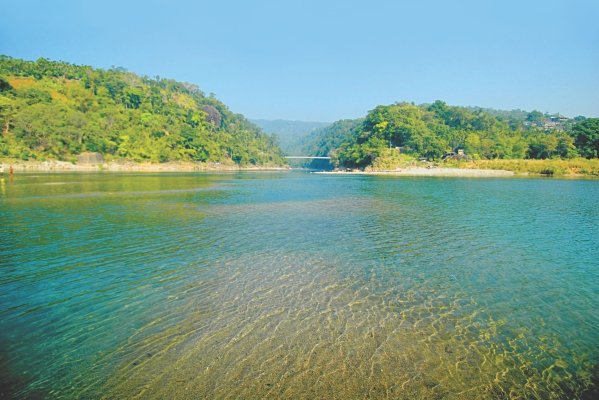
A country's touristy appeal depends largely on its history, archaeology, natural beauty and old palaces. From this point of view, Bangladesh can claim to be a historic country as it was known as Gangaridai meaning Nation on the River Ganges.
It was an ancient state founded around 300 BC where Bengal region (Bangladesh and Paschim Bangla) lies today according to information available from Wikipedia. Greek, Latin and Egyptian accounts about Gangaridai suggested that the country was located in the deltaic region of South Bengal.
Wari Bateshwar another site near the capital is believed to have been urbanised from 6th century BC and is the oldest archaeological site of the country. So the present day landmass which constitute Bangladesh has a rich past and can justifiably claim to have many tourist attractions, which indeed, are spread all over the country: Mahasthangarh (3rd century BC), Paharpur (8th century AD), Moinamoti (8th century AD), beaches, forests, hills, tribal, culture, dance and music, cottage industry, large river ways, agriculture etc.
Modernising Statistics
In many meetings, conferences, talk shows, seminars and travel fairs held in Dhaka the principle speakers including the tourism minister and senior tourism officials speak about tourist arrivals and tourism revenue. But these figures are not accepted as reliable by many users, because their mode of collection is not often dependable.
The “tourist arrival” figures are calculated on a monthly basis by the police department from reports at the entry check points and not by professionals. The foreign exchange figures are released by the Bangladesh Bank on the basis of returns furnished by the stakeholders of the tourism industry.
While reports from tourism earnings are regular, the reports on tourist arrivals lag behind by years for reasons known to the government. During the last five years (2006-2010) Bangladesh received a total number of 15,29,000 visitors and earned US$ 413.00 million.

In order to make these figures more reliable at the national and at the international levels, steps should be taken by the government to modernise the methods of collecting such statistics. There is a Tourism Satellite Accounting System for aggregating the figures of tourist arrivals and earnings, which have been introduced by the United Nations World Tourism Organisation (UNWTO).
Bangladesh, a founding member of the UNWTO, should avail this technical assistance from UNTWO under the 'digital' Bangladesh programme for streamlining these compilations.
The World Travel and Tourism Council (WTTC) and UNWTO reports say that international arrivals have been positive in 2012, although in the Euro Zone, due to sovereign debt issues and national austerity policies, tourism spending has declined. The pace of growth in the developing countries, including Bangladesh, is faster than in developed nations.
Fluctuations
Tourism and the resultant employments in the sector fluctuate with every major incident that affects the world; namely the global melt-down of banks, climate change, Tsunami and incidents like Arab spring.
In order to adjust to the fluctuations, major tourist destinations adjust their tourism policies in time. The US government is very much awake to the problems of fluctuations. President Obama in January last year signed a law, The Travel Promotion Act 2010, to take steps in keeping domestic tourists at home and to attract more inbound tourists; keeping in mind that the number of Chinese visitors is expected to grow by 259% in the next 5 years and the number of Brazilian tourists is expected to swell by 83%.
The US government is also liberalising entry formalities by waving/relaxing the visa rules and allowing the citizens of Taiwan to visit US without a visa for 90 days. Besides, US government is undertaking giant travel promotion campaigns in their market areas and using high-profile spokes persons, websites, social media tools to work together to bring together interesting “travelling opportunities” to the international public and the travelling professionals.
Comparing the situation of US, which look at all the problems affecting the globe with Bangladesh, may sound utopian but the point that is being made here is that the Bangladesh government should learn from the best practices in tourism development, and activate the government outfits to respond to the modern marketing needs. The weak areas of action of the government are identified belo:
Speed and Implementation
The government created in 2009 the Tourism Board in addition to the Bangladesh Parjatan Corporation, which existed for the last 40 years to expedite the growth of tourism in the country. It now appears that both the organisations are less active in their divided filed of activities.
It is learnt from a very senior officer of the Bangladesh Parjatan Corporation that during the last financial year (2011-2012), the government allocated Tk.650.00 million to the Board for promoting and branding Bangladesh. A bulk of this allocation has remained unused.
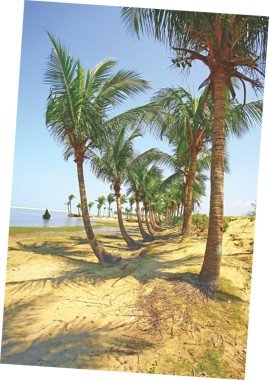
During the last year, the Board participated in some international tourism fairs but their presentations were the poorest due to a lack of experience. The Board is composed of 11 representatives drawn from various ministries of the government and 5 directors from private sectors, who do not directly transact with any tourism business.
The Board is supposed to meet once in every 2 months to transact business but nothing is known about their activities. The Board does not inform the print and electronic media. There is a National Tourism Policy in the country and there is a National Tourism Council headed by the Prime Minister. But nothing is known to the public about the activities of this high level council.
The government has enacted a Tourist Resort Act in 2010 to safe guard the interest of the tourist areas. But there are allegations that this law is being flouted by MPs, party men, local influential people in connivance with the local administration:
(a) A particular case is mentioned about Mahasthangarh, one of the oldest archaeological sites of Bangladesh, where Gautam Buddha came and preached Buddhism. Here in the protected area, some locals had vandalised the archaeological site and tried raising a mosque in its place. The local people stood against it. The matter went to the court, which declared the activities illegal and directed the local Deputy Commissioner to stop the unauthorised construction;
(b) In Cox's Bazar a MP has constructed a hotel and sold away the same for living on time sharing basis and it stands outside the hotel and motel zone very close to the beach. The local people stood agitated on many such irregular and unlawful activities of the local leaders of the political parties; and
(c) The government in order to sponsor and oversee the growth of Cox's Bazar as a prime tourist centre has constituted the Cox's Bazar Development Authority with the Deputy Commissioner as its head.
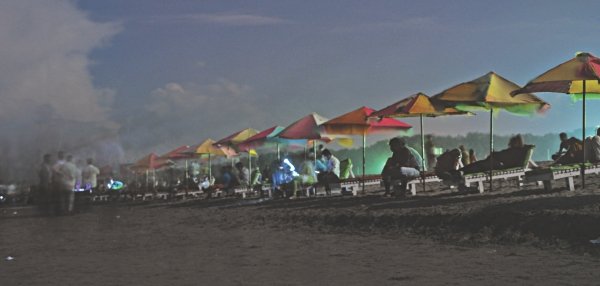
At present Cox's Bazar, an unplanned beach town, having nearly 450 hotels and the motels, experiences seasonal traffics; and all kinds of illegal activities are conducted there, according to personal experience of some local and many foreign tourists and some official who work in the hotels there.
The Ministry of Civil Aviation and Tourism, despite its existence from 1975, has not been able to bring out any official hotel guide, travel agents guide and tour operators guide. The minister is generally seen performing routine functions such as banning smoking in tourist hotels (government by a law) has banned smoking in public places inauguration of 3-4 travel fairs in a year and these travel fairs promote foreign destinations, rather than domestic tourist centres.
Many promises came from the minister pretty fast before the listeners in the recent past, but the follow-up by his ministry remained pretty slow.

Inbound Tourism
At present, despite some investment in putting Bangladesh on the international tourism map, there has been a significant failure to make any real impression. The first priority for any Marketing and Communications activity is to rectify this failure.
The government must define the key target audiences; analyse what the target group needs: history, archaeology, culture, heritage, cuisine and shopping; create affordable flights and facilitate travel documentation including making visas easy and accessible, especially for potential travelers from key markets (US, Europe, Australia, Japan and China).
The present unhelpful attitudes of missions aboard and at the entry points to harass foreign travellers have to be rectified. It must be understood that welcome to tourist's starts at the visa office, moves to arrivals immigration queues, and onward to hotel and accommodation.
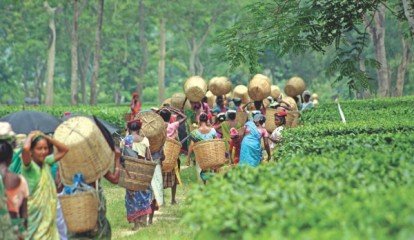
Multiplier Effect
Because of the very absorbing capacity of this industry which is influenced by the functions of many ministries, departments and private sector enterprises, the scope of tourism activities have expanded. UNWTO, WTTC, ILO and UNESCO say that: tourism can generate revenue in areas of high biodiversity; tourism can raise public support for conservation since it can provide environmental education to visitors and local/rural people; tourism can catalyse economic opportunities for local/rural people; tourism can be less environmentally damaging than other revenue generating industries based on natural resources; tourism may be one of the few economic activities suited to take place within conservation areas located on marginal land and tourism based on natural resources can theoretically be sustainable if its impacts are managed and mitigated.
The multiplier effect of the tourist dollar bigger, as the dollar changes hands through 13 beneficiaries within the country.
Branding
Most destination countries have superb five-star resorts and attractions, unique culture, landscape and heritage. Each place describes itself as having the friendliest people, and high standards of customer service. As a result, the need for destinations to create an identity -- to differentiate themselves from their competitors -- is more critical than ever.
The 'Beautiful Bangladesh' slogan, upon which such activities are based at present, is common place and uncompetitive, in a highly sophisticated and competitive market. The work behind branding this nation should be done in Bangladesh, in consultation with sociologists, economists, researchers' economists and environmentalists.
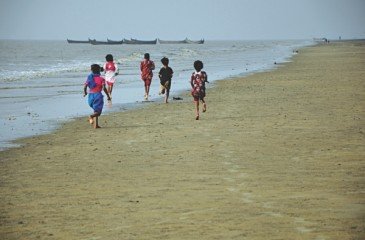
nc
nc
wow
nc
nc
nc